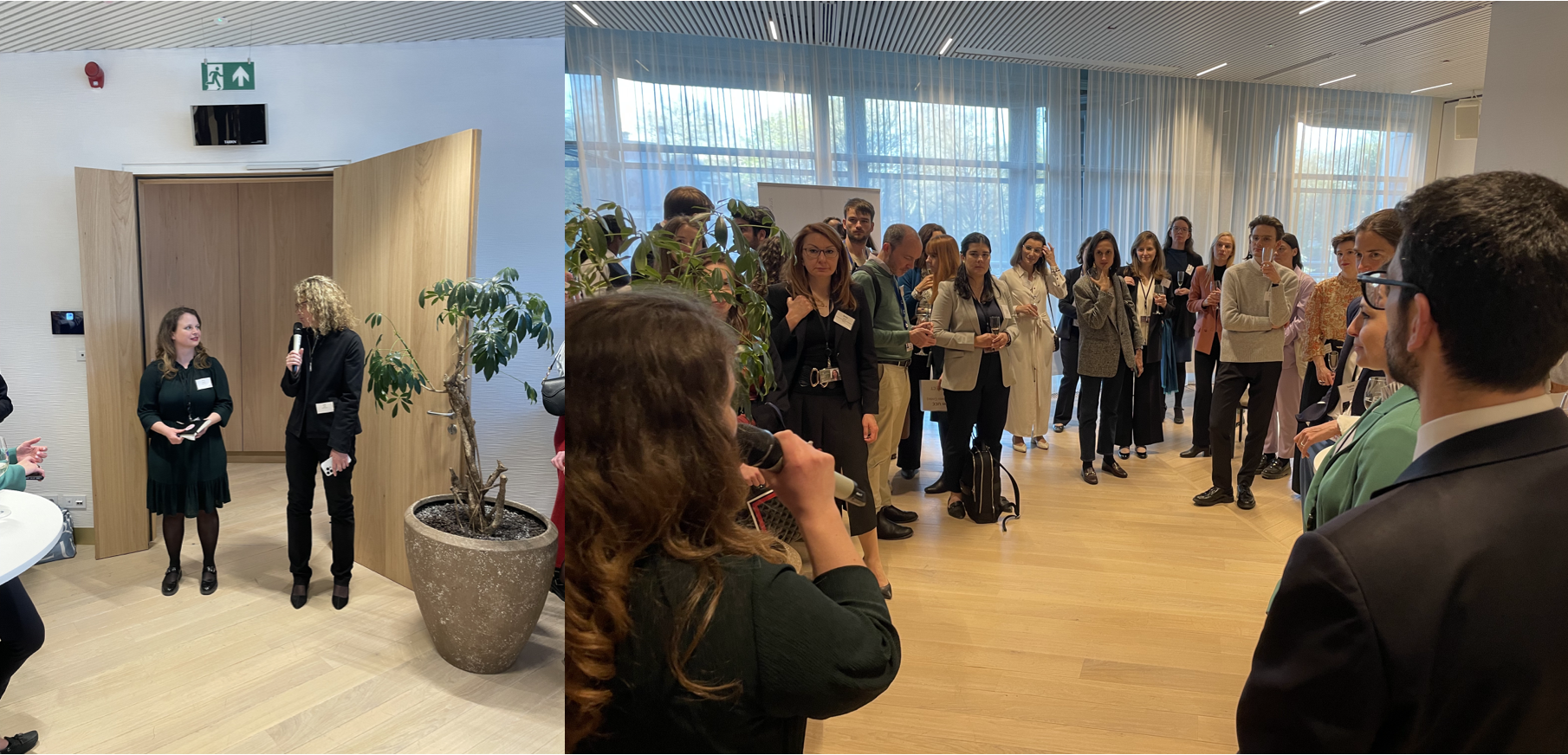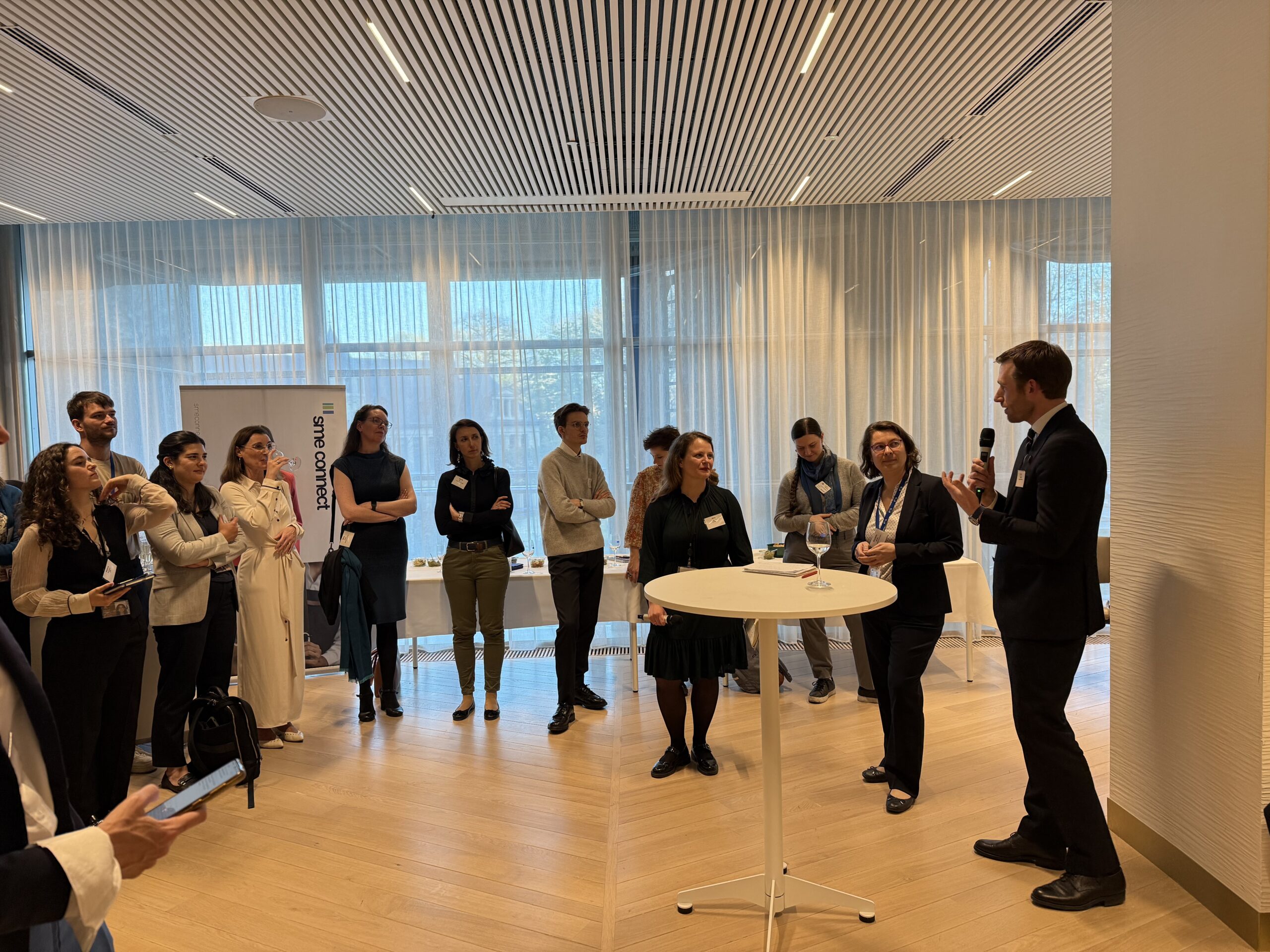The EU Customs Reform:
Preparing for the Future of Trade
in an Uncertain World

As the world is facing trade tensions, the ongoing reform of EU customs rules shines a spotlight on fundamental questions – how to protect free trade while ensuring a level playing field for companies of all sizes and origin? How to ensure regulation does not hinder entrepreneurship?
In this scenario, the overhaul of EU customs rules raises as many opportunities as the challenges it brings, particularly in sectors such as e-commerce. As the EP has adopted its position in 2024 and the Council is getting closer to its negotiation position regulators and stakeholders are called to discuss a wide array of topics, ranging from the establishment of an EU Customs Authority to the obligations and legal status of importers. EU elections also brought new perspectives, with the European Commission releasing its toolbox for safe and sustainable e-commerce, pitching additional ideas for co-legislators to consider, such as the potential requirement for e-commerce operators to pay a “handling fee” to offset the costs of managing low-value consignments entering the EU.
Far from being a merely technical subject, the reform of customs rules remains at the forefront of the EU’s trade policy, as it is bound to define the direction of travel for the European Union in the years to come. Ensuring this direction favours businesses, and particularly SMEs seeking to grow, while finding the right balance between granting consumers freedom to choose and protecting people, business and the environment from harmful practices will remain the main challenge in these negotiations.
Aware that there is no “silver bullet” to answer all the questions brought about by the reform, our fireside chat, organised with the initiative of Women in Trade on 9 April, hosted in the European Parliament by DIRK GOTINK MEP, Rapporteur on the proposal for a regulation of the European Parliament and of the Council establishing the Union Customs Code and the European Union Customs Authority, and repealing Regulation (EU) No 952/2013; and joned CHARLOTTE MERLIER, Member of Cabinet of Commissioner Maroš Šefčovič, moderated by ALICE STRADI, Steering Committee Member of the Women in Trade Network; Senior Associate at Altermind, our debate titled “The EU Customs Reform: Preparing for the Future of Trade in an Uncertain World” brought fresh perspectives into one of the greatest challenges in trade policies and the digital economy.

After the welcomes of ALICE STRADI and LILIA HEITZ, the debate took off with the introduction of CHARLOTTE MERLIER. She emphasized that customs policy now holds a new strategic position within the portfolio of the Commissioner for Trade and Economic Security. This shift reflects a broader understanding of customs not merely as a tool for taxation, but as a critical pillar of trade, security, and enforcement within the EU’s internal market. Charlotte explained that while customs duties account for around 9% of the EU budget, customs authorities also serve a far broader role. They are key to maintaining a level playing field — ensuring that goods entering the EU meet the same safety, environmental, and consumer standards as those produced within the Union. Customs checks are also integral to combating counterfeiting, upholding product safety, and addressing economic and national security risks, such as controlling sensitive imports and ensuring secure supply chains. She underlined that effective implementation and enforcement of EU legislation depend on customs authorities. Without them, even the best legal frameworks would be meaningless in practice. This is why customs has been strategically linked to both trade and security.
Charlotte then introduced the ongoing EU customs reform, built around four key pillars: A new EU Customs Authority – envisioned as a central body to support enforcement efforts across Member States, ensuring more harmonized and effective controls, and increasing the EU’s global visibility in customs matters. A centralized EU Customs Data Hub – a single IT system that would replace the current patchwork of fragmented national systems. This hub will simplify processes for businesses—especially SMEs—by providing a unified interface for all customs operations across the EU, saving time and reducing administrative costs. Modernized and streamlined customs procedures – including better data reuse, reduced duplication, and improved accuracy. Operators would no longer need to submit the same information multiple times, further reducing burden and error. Focused attention on e-commerce – a fast-growing area that presents unique customs challenges, to be discussed further in upcoming sessions. She concluded by stressing that this reform is not just about technical efficiency, but about redefining the role of customs in a modern, interconnected Europe—where trade, economic security, and enforcement go hand in hand.

DIRK GOTINK MEP highlighted that customs policy has undergone a remarkable shift in political relevance — once overlooked, it is now a high-profile issue central to trade, security, and consumer protection. He noted that e-commerce has brought customs issues into the daily lives of millions of European consumers, particularly around product safety, refunds, and poor-quality imports. The explosion of low-cost online retail has led to widespread import of non-compliant, sometimes dangerous goods—from cosmetics to electronics — prompting growing public concern and media attention. Mr. Gotink described a visit to Charles de Gaulle – Roissy Airport, where customs inspections revealed containers full of unsafe, non-compliant products. Due to limited resources and legal gaps, authorities often lack the ability or incentive to act. For example, when goods are seized, customs must pay for disposal, creating a disincentive to inspect. He stressed that only a tiny fraction of imports are actually checked, leaving the EU’s internal market highly vulnerable. He emphasized that this vulnerability is being exploited by exporters using AI to bypass EU controls, shifting supply chains between entry points and reshipping goods when blocked. In response, Mr. Gotink argued that Europe must match this technological sophistication integrating AI, centralizing customs data, and coordinating enforcement to close existing loopholes.
Turning to the customs reform, Mr. Gotink expressed strong support for the Commission’s proposals, particularly the creation of an EU Customs Authority, the establishment of a massive data hub connecting all Member States, and better enforcement across the board. He acknowledged the political sensitivities around data access and governance but stressed the urgency of delivering a stronger, more integrated system. He also pointed to institutional challenges: while the Council is making progress, Parliament lags behind on certain technical elements due to a lack of specialized knowledge. He noted that Parliament’s first reading was carefully managed to avoid reopening difficult issues, but the upcoming initiative report would be a chance to shape priorities, especially regarding cross-border shipments, traceability, and e-commerce regulation. Mr. Gotink criticized existing legislation like the Digital Services Act (DSA) for failing to address the physical trade of goods, and stressed the importance of revisiting liability rules for online platforms, many of which are facilitating the entry of harmful or substandard products. He concluded by affirming the need for a bold, protective reform that strengthens the internal market and restores public confidence. He called for fast progress under the Polish Presidency, a clear signal from the Council, and a united effort from Parliament to deliver on customs reform, making it a real example of EU action that defends consumers, fair trade, and market integrity.
CHARLOTTE MERLIER expanded on the topic of customs reform by addressing the elimination of the de minimis threshold — the rule that exempts low-value parcels under €150 from customs duties. She explained that while this rule may have made sense in the past, it no longer reflects the realities of modern trade, especially with the rapid growth of e-commerce. It currently creates an unfair imbalance between bulk imports, which are taxed, and small parcels, which often are not. The Commission therefore proposes to abolish the threshold, aiming for a level playing field. She emphasized that under the current legal environment, checks are performed. Thanks to the reform, enforcement will be data-driven, allowing authorities to focus resources more efficiently. Customs officers will increasingly rely on information submitted in advance to identify high-risk parcels and avoid wasting effort on compliant goods. Charlotte noted, however, that even with improved tools and technology, there will always be limits to how many checks can realistically be performed, given the rising volume of parcels entering the EU.
Turning to the financial and legislative aspects, she explained that the new customs duties collected would follow the same distribution as existing duties: 25% retained by Member States, and 75% going to the EU budget. With respect to a possible ‘handling fee’, she stressed that any new mechanism must be WTO-compliant, as the EU remains firmly committed to multilateral rules and being a reliable global trade partner, even as some other players choose to act unilaterally. She acknowledged that the handling fee concept raises many questions: how it would be structured, whether it would target all imports or only certain types, who would collect it, and what its purpose would be—whether to fund enforcement, deter non-compliance, or cover environmental costs. She made clear that these are open questions and invited both the Council and the European Parliament to contribute proposals and explore the most effective solutions. In conclusion, Ms. Merlier emphasized that the Commission is open to going beyond its initial proposal, and that the current reform process is an opportunity for the co-legislators to think creatively and ambitiously about how to address the challenges of e-commerce and global trade while ensuring fairness, compliance, and enforcement capacity in the EU’s customs system.
DIRK GOTINK MEP shared reflections on the broader political and strategic considerations surrounding the customs reform, particularly the removal of the de minimis threshold and the potential introduction of handling or compliance-related fees. Mr. Gotink expressed openness to connecting any new fee to clear objectives, such as compliance enforcement or recycling and sustainability, rather than simply viewing it as a revenue stream for national budgets. He stressed the importance of framing the reform around a strong narrative — not just about enforcement, but about fairness, environmental impact, and responsibility. Mr. Gotink referenced the growing attention to the environmental consequences of mass low-value imports, noting that Extended Producer Responsibility (EPR) has entered the conversation. He pointed to recent journalistic investigations showing how returned or unwanted goods — like fast fashion — can end up discarded in far-flung countries, raising both ethical and environmental concerns. He emphasized that solid data is still needed to properly assess the costs, logistics, and impact of these practices — asking questions like: Where do goods go? Who pays for their disposal? How much is it costing public authorities? Finally, Mr. Gotink cautioned that from an international perspective, abolishing the de minimis threshold will be interpreted as a tariff move, especially given the high volume of low-value imports it covers. He suggested this reform could easily be swept into the broader global trade tensions and retaliatory tariff discourse, even if the intent is regulatory rather than protectionist.